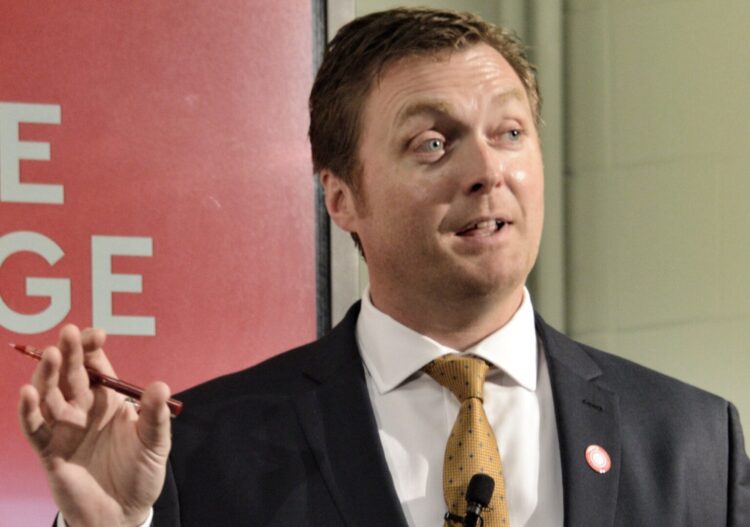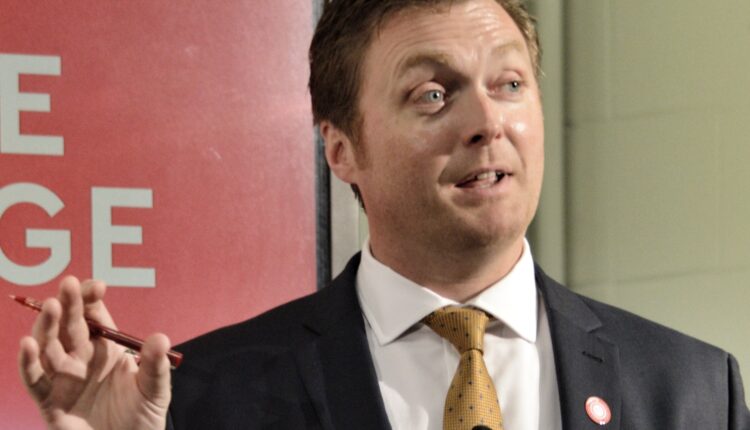Mersey Maritime to host top-level summit at COP26
In November world leaders will gather in Glasgow for the COP26 climate change event and industry body Mersey Maritime will hold a top level summit close to the venue. Tony McDonough reports

Industry body Mersey Maritime is sending a delegation to the COP26 global climate change conference to outline how Liverpool city region’s £4bn maritime sector is taking the lead on decarbonisation.
During the event in Glasgow, in Scotland, in early November, Mersey Maritime chief executive Chris Shirling-Rooke will chair a discussion that will feature leading lights in the UK’s £46bn maritime industry. It will be one of the cornerstone events at the Maritime UK International Maritime Hub,
COP26 is the United Nations’ 26th annual conference on climate change running from October 31 to November 12. It will see world leaders, including UK Prime Minister Boris Johnson and US President Joe Biden, come together to accelerate action towards the goals of the Paris Agreement and the UN Framework Convention on Climate Change.
In mid-September the latest United in Science 2021 report from the UN painted a stark picture. It said climate change drivers and impacts are accelerating and not enough is being done to meet emissions targets.
UN Secretary-General Antonio Guterres said: “This report is clear. Time is running out. We need a breakthrough on protecting people and their livelihoods… we need all countries to commit to net zero emissions by 2050, backed up by concrete long-term strategies.”
The Mersey Maritime event will look at two aspects of the decarbonisation of the maritime sector – port services and supply chains. Speakers taking part will include:
- Nigel Quinn – CEO, Bibby Marine
- Richard Burnett – CEO, Road Haulage Association
- Ed Watt – maritime partner, Addleshaw Goddard
- Kevin Hobbs – CEO, Caledonian Maritime Assets (CMAL)
- Kevin Smith – founder and CTO, Maritime Digital Hub
- Ruth Wood – head of commercial, Mersey Maritime
- Jodie Battson – head of Ppartnerships, Western Union Business Solutions
Companies in the Mersey Maritime sector are leading the way on slashing carbon emissions. Peel Ports has been successful in persuading shipping lines to bypass southern ports and call into the Mersey, significantly cutting road miles. And Bibby Marine is developing a new vessel that will use alternative fuels or technologies.
And at the heart of the local sector’s zero carbon push is the £23m Maritime Knowledge Hub (MKH) which will be located in the Wirral Waters development close to the Mersey. It will provide a national base for marine engineering research and will look to become a world leader in the development of decarbonisation technology.
The event is also being run in partnership with the Scottish Maritime Cluster, the representative body for the industry across Scotland, one of the regional cluster organisations that Mersey Maritime works with owing to its responsibility for the regional growth work of Maritime UK.
In a joint programme with the Department for Transport, delivering the principles of the Maritime 2050 strategy, Mersey Maritime encourages and helps build regional cluster organisations around the coast of the United Kingdom and has been supporting colleagues north of the border for some time.
Mersey Maritime chief executive, Chris Shirling-Rooke, said: “Liverpool city region’s maritime industry is recognised as the most successful industry cluster in Europe. While people talk about tackling climate change, or members are already well down the road in embracing a low carbon future.
“COP26 is one of the most important meetings of world leaders for decades. It is absolutely critical the planet comes together to tackle the real threat posed by climate change. A new action plan is needed to accelerate the push to net zero carbon.
“Decarbonisation has been high on the agenda for Mersey Maritime, and Maritime UK, for a long time. We will be in Scotland to demonstrate how the drive, innovation, ingenuity and collegiate approach of the maritime industry can help spearhead a low carbon future.”

